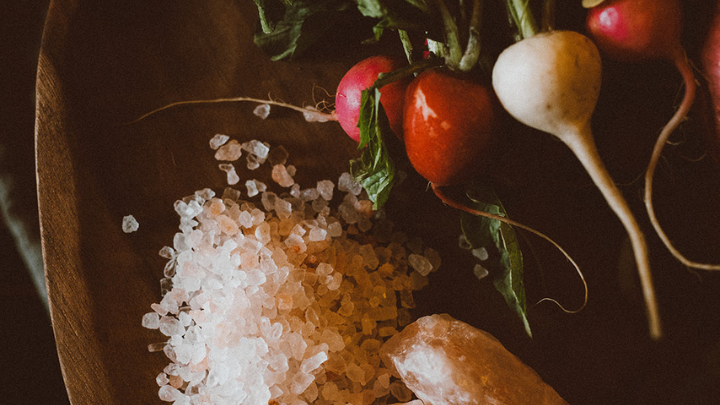The Power of Salt in Fermentation: Choosing the Best for Your Health

In the world of fermentation, the type of salt you use can make a significant difference in the quality and health benefits of your final product. Inspired by the insights from our favorite books on fermentation, including Kristen and Christopher Shockey's Fermented Vegetables, we at TOXYFREE are passionate about incorporating mineral-rich salts into our ferments and diets, steering clear of salts with unnecessary additives. Let's explore the varieties of salts we love to use and the ones we avoid.
The Importance of Salt in Fermentation
Fermentation is a living process that depends on beneficial bacteria to transform vegetables into probiotic-rich foods. The right salt is crucial for creating an environment where these good bacteria can thrive. Common salts, which often contain chemicals and additives, can inhibit this process, preventing your ferments from becoming the nutrient-dense, "alive" foods they are meant to be. Even tap water, pesticides on vegetables, or soap residue on your hands can introduce harmful substances that interfere with fermentation.
Mineral-Rich Salts of the Land
The authors recommend Redmond Real Salt and Himalayan Crystal Salt. Mined from ancient seabeds in central Utah and Pakistan, respectively, these salts have been subjected to considerable heat and pressure, forming densely compacted crystals packed with beneficial trace minerals. Their low moisture content and beautiful pink color make them ideal for krauts and other fermented vegetables.
At TOXYFREE, we are particularly excited to offer Himalayan Crystal Salt, which the authors recommend and which our founders, Laura + Behzad, have used for many years. The authors of the Fermented Vegetables book enjoy Redmond Real Salt for its affordability and local availability, which adds a subtle sweetness to ferments. Although rock salt can make pickling brine slightly gritty, this sediment settles at the bottom of the crock, leaving the quality of the vegetables unaffected.
Mineral-Rich Salts of the Sea
When it comes to sea salts, the authors recommend Sel Gris and Fleur de Sel, commonly known as Celtic sea salts. Harvested by evaporating seawater in large pans, these salts retain microscopic bits of plankton, minerals, and micronutrients that become more bioavailable through fermentation. Their higher moisture content and sweet flavor make them wonderful for fermenting. However, these coarse salts might require a bit of crushing to facilitate the brine formation in your kraut.
The Pitfalls of Iodized Salt
There's a common misconception that iodized salt is suitable for fermentation. Industrialized refined salt with added iodine can inhibit the beneficial bacteria we aim to encourage, potentially leading to discolored and less effective ferments. Refined salts lack the essential minerals found in unrefined salts, and the iodine content in refined salt can be up to 300 percent higher than naturally occurring levels. The authors prefer the trace amounts of iodine in unrefined salts, which are more balanced and beneficial for our health.
Kosher Pickling Salt: A Misunderstood Option
While many recipes call for kosher pickling salt, the authors of the Fermented Vegetables book believe this choice is more about convention than quality. Kosher salt is often praised for its lack of iodine and its ability to draw moisture efficiently due to its flaked crystals. However, it is essentially refined sodium chloride, often treated with chemicals like sodium ferrocyanide as anti-caking agents. Despite its reputation for purity, the refining process strips away many beneficial minerals, making it a less desirable option for health-conscious fermenters.
Conclusion
At TOXYFREE, we are dedicated to using salts that not only enhance the flavor of our ferments but also contribute to our overall health. By choosing mineral-rich salts from both land and sea, and avoiding overly refined and chemically treated salts, we ensure our fermented vegetables are as nourishing and delicious as possible. Embrace the natural goodness of these mineral-rich salts in your fermentation journey for a truly wholesome and flavorful experience. And don't forget, you can get the recommended Himalayan Crystal Salt right here at TOXYFREE!


Leave a comment